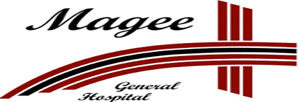Please note that this post contains affiliate links and any sales made through such links will reward MageeNews.com a small commission – at no extra cost to you.
By News Desk | June 11, 2018
If President Donald J. Trump or North Korea’s Supreme Leader Kim Jong Un desire some home-cooking today waiting for tomorrow’s big summit, they’ll have no problem finding plenty of American and Korean foods in Singapore. And they can rest assured about food safety during their visit to the Republic of Singapore, the city-state of 5.6 million that gained independence from Malaysia in 1965.
Both President Trump and Leader Kim arrived in Singapore on Sunday for the Tuesday summit. That means both chief executives will be eating several meals under the authority of the Agri-Food & Veterinary Authority of Singapore or AVA.
Singapore is known for food safety thanks to AVA. It’s achieved a good reputation even though Singapore must import over 90 percent of the food it consumes because the city-state has little farmland of its own and limited fishing grounds.
The city state’s food safety agency has been around since before Singapore’s independence. AVA currently administers a total of nine statutes, namely, the Agri-Food and Veterinary Authority Act, the Animals and Birds Act, the Control of Plants Act, Endangered Species (Import and Export) Act, the Feeding Stuffs Act, Fisheries Act, the Sale of Food Act, the Wholesome Meat and Fish Act, the Wild Animals and Birds Act, and their subsidiary legislation.
If Trump and Kim check with AVA, they will find the agency has some food safety pointers to help them during their Singapore visit. These include:
• Buy your food from established and reliable retail outlets.
• Always check the expiry date before buying food like milk and bread.
• Check to make sure that cans are not dented, bloated or rusted.
• Check packaged food to make sure that it isn’t torn, leaking or opened.
• Select frozen food stored below the load line of the freezer or chiller.
“Micro-organism are everywhere in our environment,” warns the Singapore food safety agency. “It is important to wash and keep clean to prevent harmful micro-organisms (bacteria) from falling into our food.” Its additional advice for visitors and residents alike includes:
• Wash your fruits before eating. Soak vegetables in clean water for 15 minutes before rinsing to get rid of excess dirt and pesticide residues.
• Clean raw meat and seafood before storing them, and ensure that they stored in bite-sized portions.
• Keep kitchen surfaced like countertops and cutting board clean with detergent and hot water. Dry those surfaces with tea towels or dishcloths.
• Disinfect tea towels or dishcloths regularly, once a week, with either chlorine or hot water.
• Wash your hands before and after handling food, especially raw meat and seafood.
AVA is Singapore’s national authority on food safety for both primary and processed food. It is charged with the safety of all food from production to just before retail. AVA uses a science-based risk analysis and management approach based on international standards to evaluate and ensure food safety.
The components of AVA’s food safety system includes:
• Review of production systems and practices at the source,
• Risk assessment and the setting of food safety and food labeling standards,
• Tagging of consignments of primary produce to trace sources, and food labeling to facilitate recall,
• Inspection of primary produce and processed food at the points of entry into Singapore,
• Pre and post-slaughter inspections at local abattoirs,
• Inspection and accreditation of source farms, abattoirs, food-processing factories, both local and overseas,
• Monitoring and surveillance programmes for foodborne hazards in primary and processed food,
• Laboratory testing capabilities for detecting and analyzing pathogens and chemical contaminants in livestock, frozen and chilled meat, live and chilled fish, vegetables, fruits, eggs and processed food,
• Promoting the adoption of good agricultural and manufacturing practices, and food safety assurance systems by the food industry,• A close rapport with other national authorities,
• Close monitoring of world situation for developments in food safety and potential threats.
AVA enforces food safety standards through its legal framework and with public education on the collective responsibility of the agency, the food industry and the public in ensuring food safety.
















